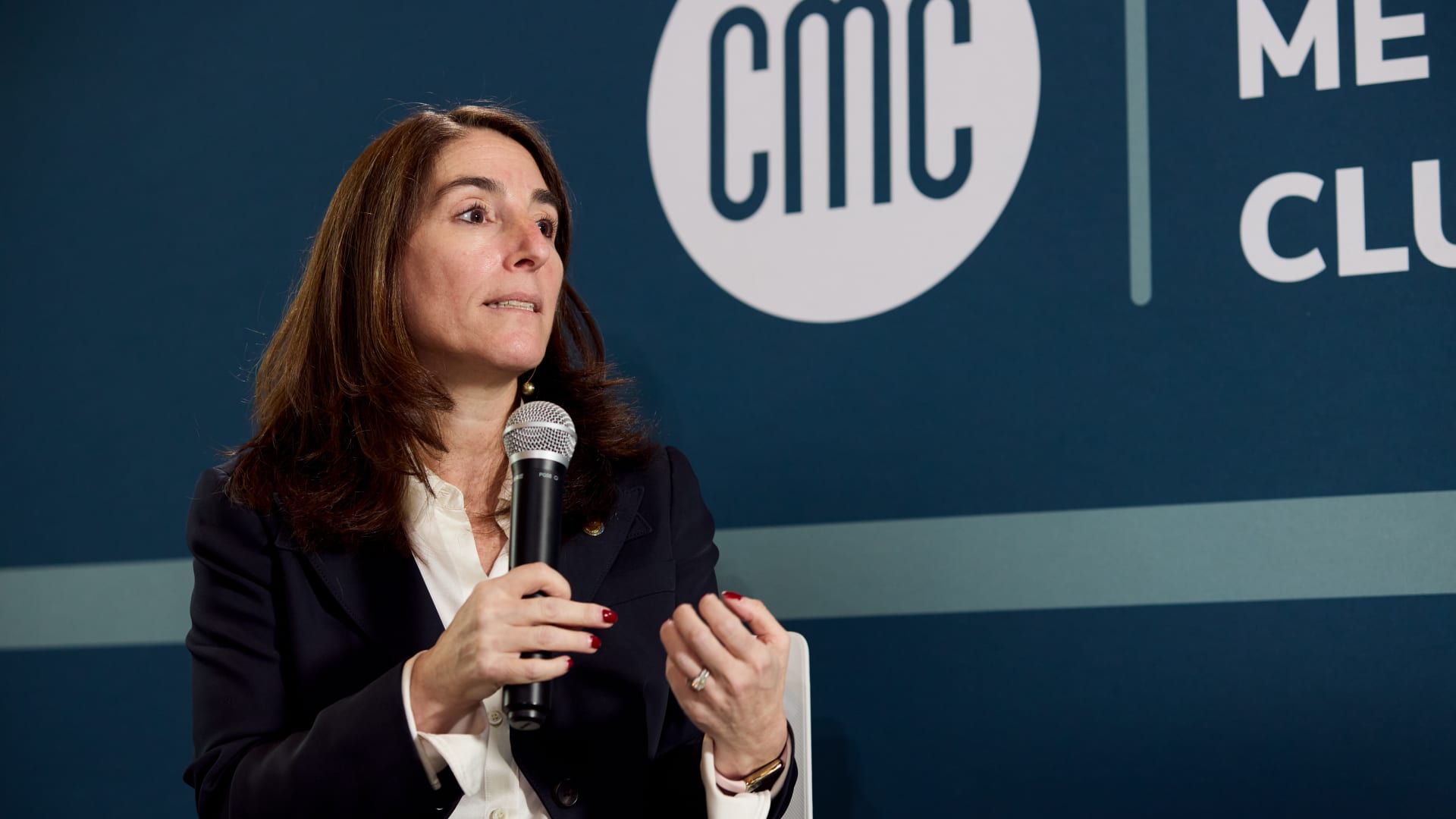Cleveland Fed President Beth Hammack said Thursday she thinks policymakers need to be patient rather than pre-emptive in assessing how tariffs will impact inflation and growth.
In her first broadcast interview since taking the reins at the central bank district in August 2024, Hammack noted the high level of uncertainty now and did not commit to a specific course of action regarding interest rate policy.
“I think we need to be patient. I think this is a time when we want to make sure we’re moving in the right direction, than moving too quickly in the wrong direction,” she told CNBC’s “Squawk Box.” “So I would rather take our time make sure we’re looking at the data, the hard data … which are actually really good.”
Hammack’s remarks come at a sensitive time for the Fed, which has been left to assess the impact of President Donald Trump’s tariffs on both inflation and employment.
Several central bank officials, including Chair Jerome Powell, have said the duties pose threats to both sides of the Fed’s “dual mandate,” posing another challenge on how to calibrate monetary policy. Hammack also voiced concerns over how the Fed might balance those priorities.
“It could be that we have the two sides of our mandate and conflict, which is the most challenging for monetary policy,” she said. “If it’s higher inflation, lower employment, that’s where things get really complicated.”
Markets strongly expect the Fed will stand pat on interest rates when it meets May 6-7, then resume cutting rates in June with the likelihood of a total three or four cuts by the end of the year, according to CME Group data.
“If we have convincing data by June, then I think you’ll see the committee move if we know which way to move at that point,” Hammack said.
However, uncertainty over tariff policy and how the Fed might react has contributed to substantial market volatility in recent months, with stocks struggling, Treasury yields rising and the U.S. dollar falling.
A former Goldman Sachs executive, Hammack said she is sensitive to market movements but only in how they affect broader economic conditions.
“Our job is not to focus on what the markets are doing. Our job is to focus on how that’s going to impact households and businesses, and what that’s going to mean in the real economy,” she said. “So we’re not steering the markets. We’re steering the real economy.”
Hammack noted that the “hard” economic data such as unemployment and inflation is still relatively good, while “soft” data such as surveys shows elevated levels of concern.
“What we’re hearing right now is that the uncertainty is really weighing on businesses,” she said. “It’s creating issues for them in terms of planning, in terms of thinking about where they’re going to go, and so some of them have put pauses on whether they’re going to make bigger investments, whether they’re going to invest in new facilities, new capital plans, and then they’re thinking about their hiring plans.”
“I wish I had a crystal ball. We don’t have one,” Hammack added.
Get Your Ticket to Pro LIVE
Join us at the New York Stock Exchange!
Uncertain markets? Gain an edge with CNBC Pro LIVE, an exclusive, inaugural event at the historic New York Stock Exchange.
In today’s dynamic financial landscape, access to expert insights is paramount. As a CNBC Pro subscriber, we invite you to join us for our first exclusive, in-person CNBC Pro LIVE event at the iconic NYSE on Thursday, June 12.
Join interactive Pro clinics led by our Pros Carter Worth, Dan Niles, and Dan Ives, with a special edition of Pro Talks with Tom Lee. You’ll also get the opportunity to network with CNBC experts, talent and other Pro subscribers during an exciting cocktail hour on the legendary trading floor. Tickets are limited!

 Blog Post7 days ago
Blog Post7 days ago
 Personal Finance1 week ago
Personal Finance1 week ago
 Economics1 week ago
Economics1 week ago
 Personal Finance1 week ago
Personal Finance1 week ago
 Accounting1 week ago
Accounting1 week ago
 Finance1 week ago
Finance1 week ago
 Finance1 week ago
Finance1 week ago
 Finance1 week ago
Finance1 week ago









